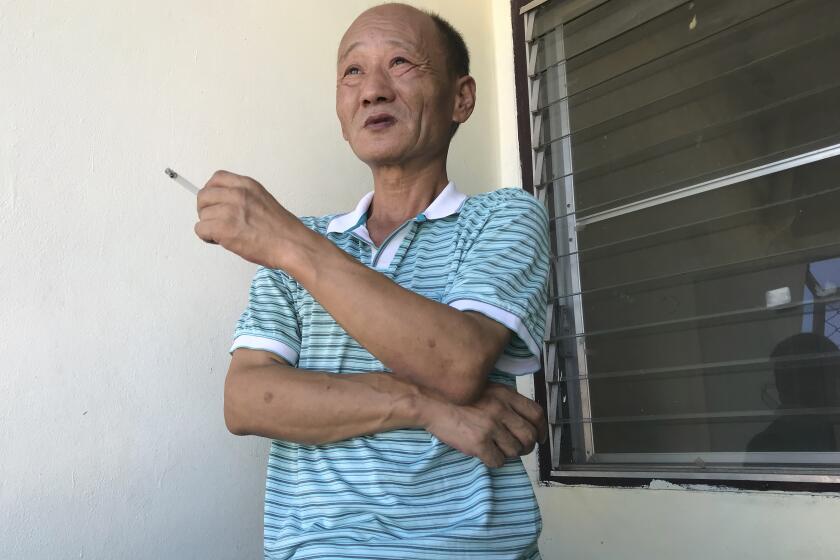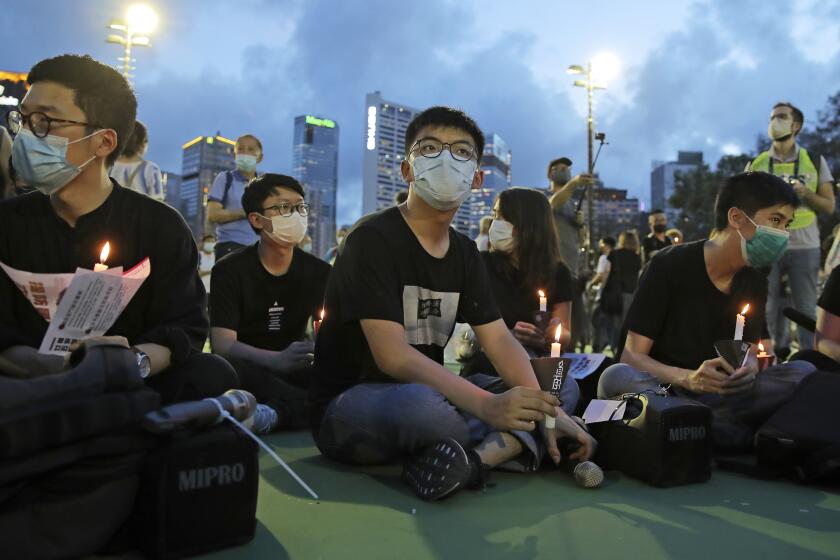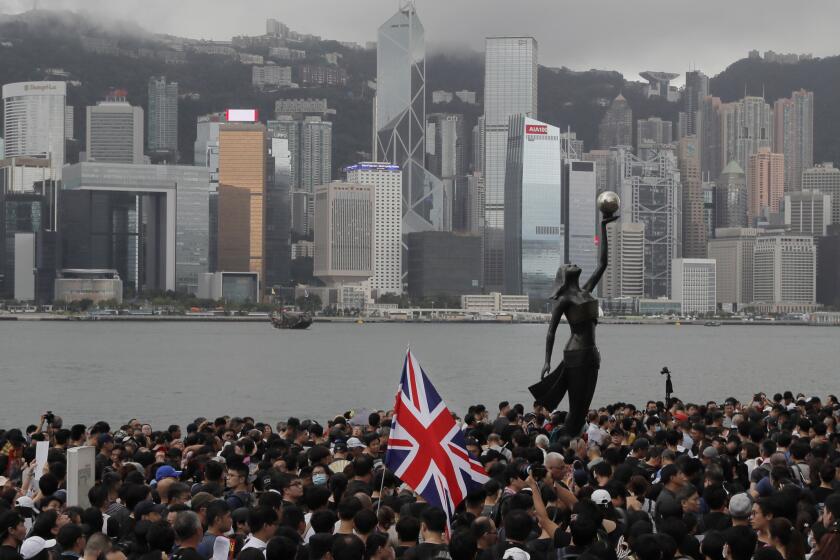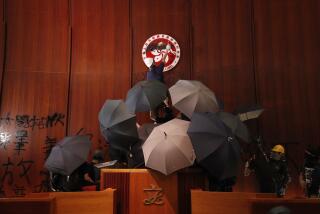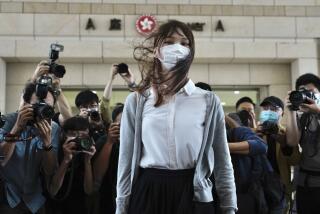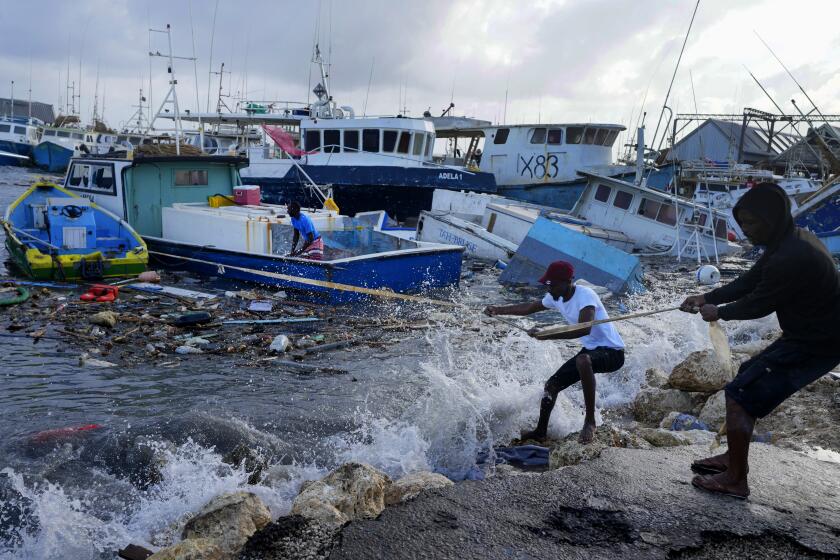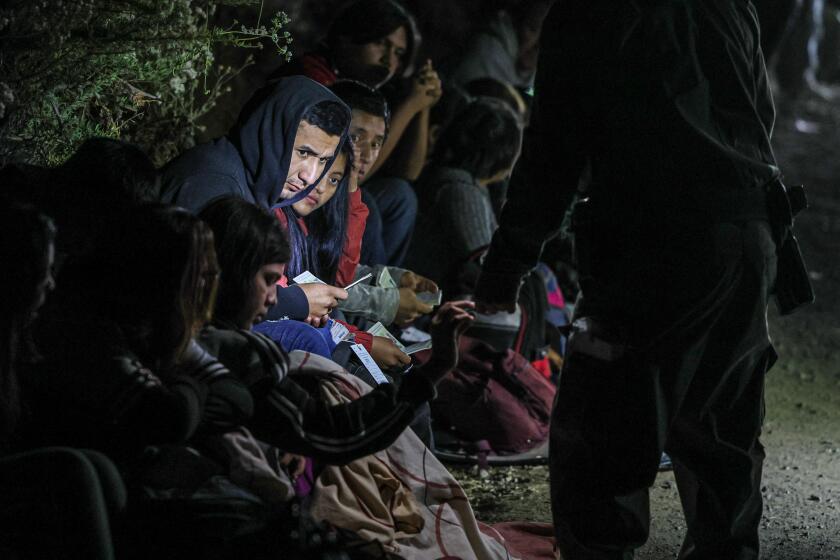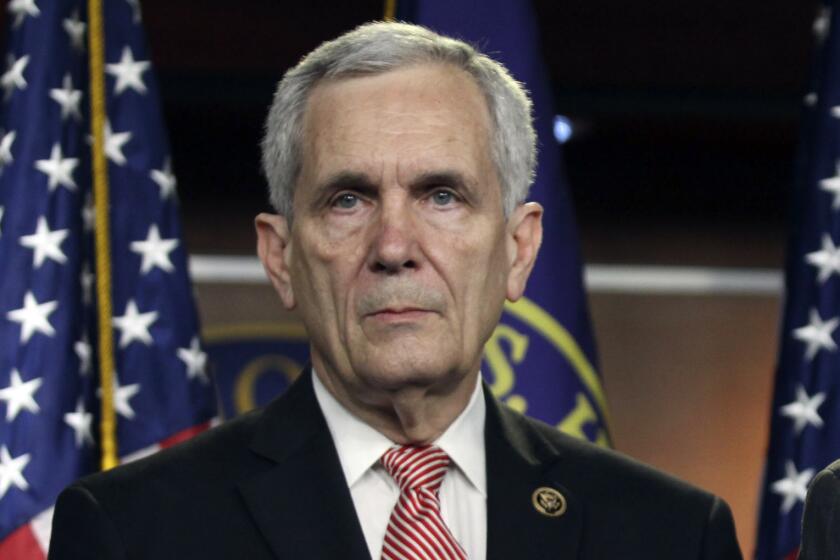Hundreds show up for Tiananmen Square massacre vigil in Hong Kong despite ban
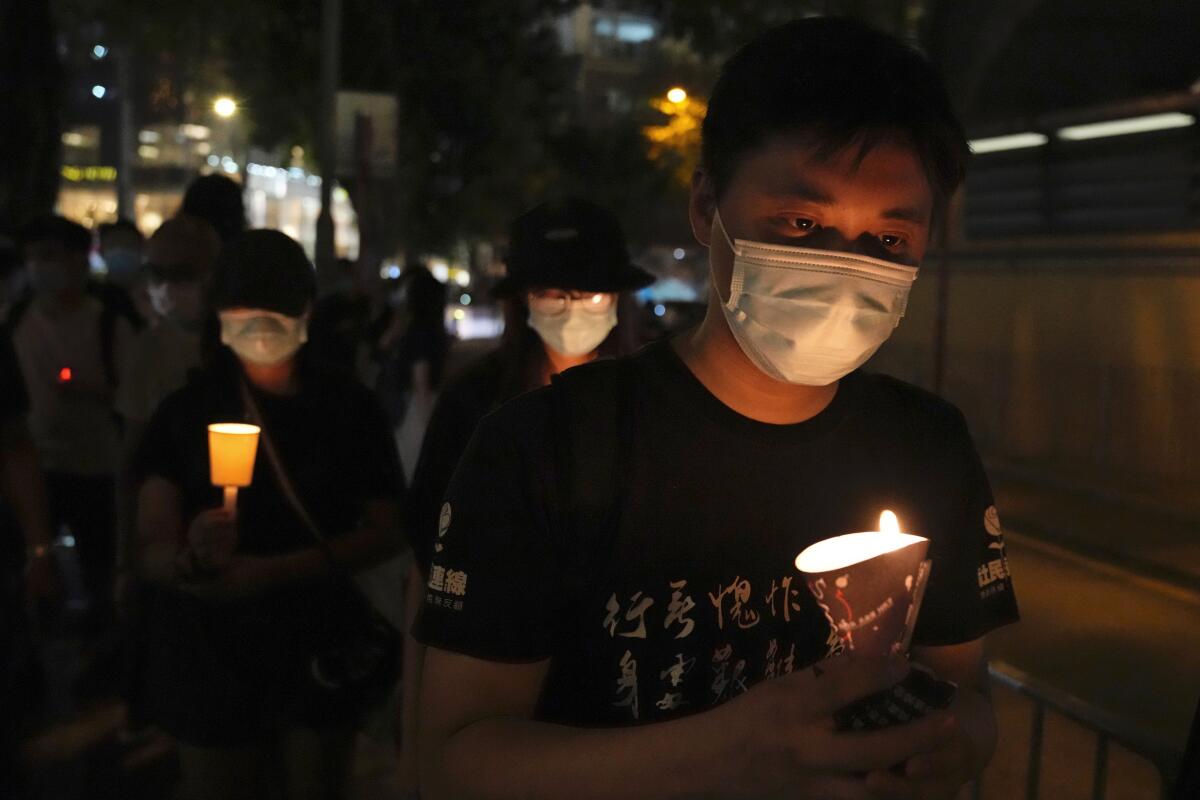
Hundreds of people gathered near a Hong Kong park Friday despite a ban on an annual candlelight vigil remembering China’s deadly crackdown in Beijing’s Tiananmen Square and despite the arrest of an organizer of previous vigils.
Hong Kong police banned the vigil for a second straight year, citing coronavirus social-distancing restrictions, although there have been no local cases in the semi-autonomous Chinese city for more than six weeks.
Police closed off large parts of Victoria Park — the venue of past vigils — in the city’s popular Causeway Bay shopping district and warned people not to participate in unauthorized assemblies, which carry a penalty of up to five years in jail.
Despite the ban and a heavy police presence, hundreds of people still turned up Friday night to walk along the perimeter of the park. At 8 p.m., many turned on the flashlights on their smartphones while others lit candles in remembrance of those who lost their lives when China’s military put down student-led pro-democracy protests in Tiananmen Square on June 4, 1989. Hundreds, if not thousands, were killed in the crackdown.
In past years, tens of thousands of people have gathered in Victoria Park to honor the dead. Last year, thousands defied the ban, lighting candles and singing songs. Police later charged more than 20 activists with participating in the event.
A man who joined the hundreds near the park on Friday, giving only his surname, Wong, because of fears of punishment, said the Tiananmen Square crackdown is a memory shared by Hong Kongers, and he wanted to commemorate the students and citizens who were killed by China’s People’s Liberation Army.
Three decades later, China’s ruling Communist Party remains relentless in its efforts to erase the public memory of the 1989 pro-democracy Tiananmen Square protests that ended in a deadly military crackdown.
China’s ruling Communist Party has never allowed public events on the mainland marking the military’s attack on protesters and citizens. Security was increased in Tiananmen Square in central Beijing on Friday morning, with police checking pedestrians’ IDs and tour buses shuttling Chinese tourists as on any other day.
Authorities have squelched all discussion of the events on the mainland, where the few remaining activists and victims’ advocates are put under increased police monitoring and taken away on involuntary “vacations” around the anniversary.
Chinese officials contend that the country’s rapid economic development in the years since what they call the “political turmoil” of 1989 proves that decisions made at the time were correct. Along with the deaths of protesters and ordinary citizens, the events of 1989 caused considerable upset within the Communist Party, with the reformist general secretary, Zhao Ziyang, removed from office and placed under house arrest until his death in 2005.
Efforts to suppress public memory of the Tiananmen events have lately turned to Hong Kong, where the June 4 Museum was closed this week just three days after opening, and police warned residents not to attend the vigil.
Hong Kong authorities have banned the annual Tiananmen Square massacre commemoration this year. But some are determined to remember — and resist.
Earlier Friday, police arrested Chow Hang Tung, a vice chairwoman of the Hong Kong Alliance, which organized Hong Kong’s annual candlelight vigil, the group said.
Although police did not identify Chow, they said they had arrested a 36-year-old woman from the Hong Kong Alliance as she was advertising and publicizing an unauthorized assembly via social media despite the police ban on the vigil. After the ban was issued, Chow urged people to commemorate the event privately by lighting a candle wherever they are.
Two other key members of the alliance — Lee Cheuk-yan and Albert Ho — are behind bars for taking part in protests in 2019.
At the University of Hong Kong, students took part in the annual washing of the “Pillar of Shame” sculpture, which was erected to remember the victims of the Tiananmen Square crackdown.
Hong Kong democracy activist Joshua Wong is sentenced to more jail time for participating in a commemoration of the 1989 Tiananmen Square massacre.
Charles Kwok, the president of the students’ union, said that the event was “legitimate and legal” and that they hoped to commemorate the people who sacrificed for freedom and democracy.
“For HKU students, in cleaning the Pillar of Shame, we shall learn how our predecessors defended the freedom of expression before, and we shall not easily give up,” Kwok said.
As Chinese authorities seek to curb remembrances, they also seem confident that the passage of time will erase memories of the 1989 crackdown.
The government made no response to an appeal from Tiananmen Mothers, published on the Human Rights in China website, urging the party to release official records about the crackdown, provide compensation for those killed and injured, and hold those responsible to account.
Start your day right
Sign up for Essential California for the L.A. Times biggest news, features and recommendations in your inbox six days a week.
You may occasionally receive promotional content from the Los Angeles Times.
Tiananmen Mothers said 62 of its members have died since the group, which represents victims’ relatives, was founded in the late 1990s. It said that many young Chinese have “grown up in a false sense of ... enforced glorification of the government [and[ have no idea of or refuse to believe what happened on June 4, 1989, in the nation’s capital.”
In self-governing Taiwan, activists who host an annual Tiananmen memorial that draws hundreds are moving mostly online as the island faces its worst coronavirus outbreak so far. The New School for Democracy, an NGO, is setting up a temporary memorial pavilion Friday afternoon where people in small groups can leave flowers and other mementoes in honor of the date.
The U.S. State Department issued a statement of support for those advocating for victims and pursuing the truth about the events.
“The courage of the brave individuals who stood shoulder-to-shoulder on June 4 reminds us that we must never stop seeking transparency on the events of that day, including a full accounting of all those killed, detained, or missing,” the statement said, adding that such demands were echoed in the struggle for political rights in Hong Kong.
Thousands of people are fleeing Hong Kong amid a crackdown by Beijing that prompted Britain to loosen visa rules for residents of its former colony.
Chinese Foreign Ministry spokesperson Wang Wenbin denounced the statement as interference in China’s internal affairs and said the U.S. should “first look at itself in a mirror and reflect on its own poor record in human rights.”
“With such a poor human rights record backed by iron-clad evidence, in what position can the U.S. lecture others on human rights?” Wang said, referencing the 1921 massacre of Black residents in Tulsa, Okla., discrimination against minorities and U.S. actions in the Middle East.
More to Read
Start your day right
Sign up for Essential California for news, features and recommendations from the L.A. Times and beyond in your inbox six days a week.
You may occasionally receive promotional content from the Los Angeles Times.
